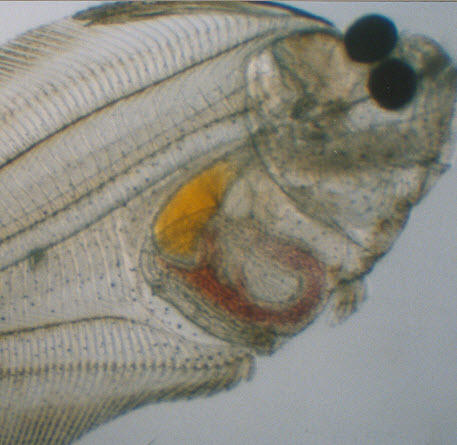Digestive physiology
The major function of the digestive system is to supply dietary nutrients to the body tissues. The efficiency of this process is one of the key factors that determines the supply of substrates to the body tissues
Hovedinnhold
The research targets both larval and adult stages of fish. Much work is done on during the first critical stages when fish larvae start exogenous feeding. The larval intestine very simple, in some species being a straight tube but, when given the proper feedstuff, it has a remarkable processing capacity and efficiency. The digestive physiology of larval stages has relevance to mariculture since many problems of survival and quality in fry production are apparently related to the performance of the digestive system during ontogeny.
The work on the physiology of digestion and intestinal absorption includes functional development and gross anatomical differentiation of the digestive tract, including associated organs such as the liver, bile and exocrine pancreas, in order to better understand the larval digestive physiological processes. Specific areas include processing capacity of the digestive tract (in vivo studies); absorption and transporter processes (peptides and amino acids); neuroendocrine control of digestion (CCK, PYY, Ghrelin), differentiation of stomach during metamorphosis. Species studied: Atlantic cod, Atlantic halibut, Atlantic salmon and zebrafish
Research team: Yuko Kamisaka, Ragnhild Valen, Ann-Elise Jordal; Ana Gomes; Shou Wang (MSc student) and Ivar Rønnestad
